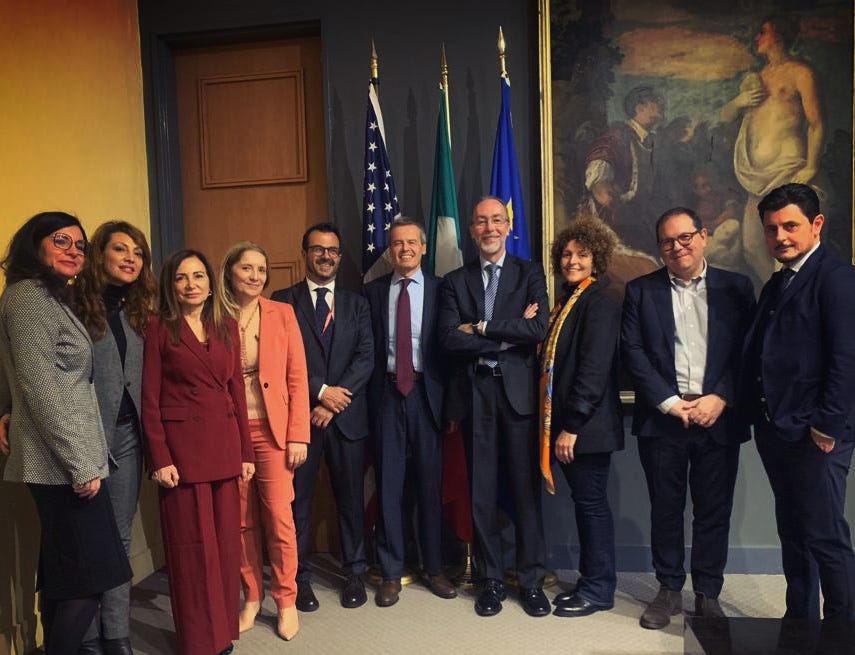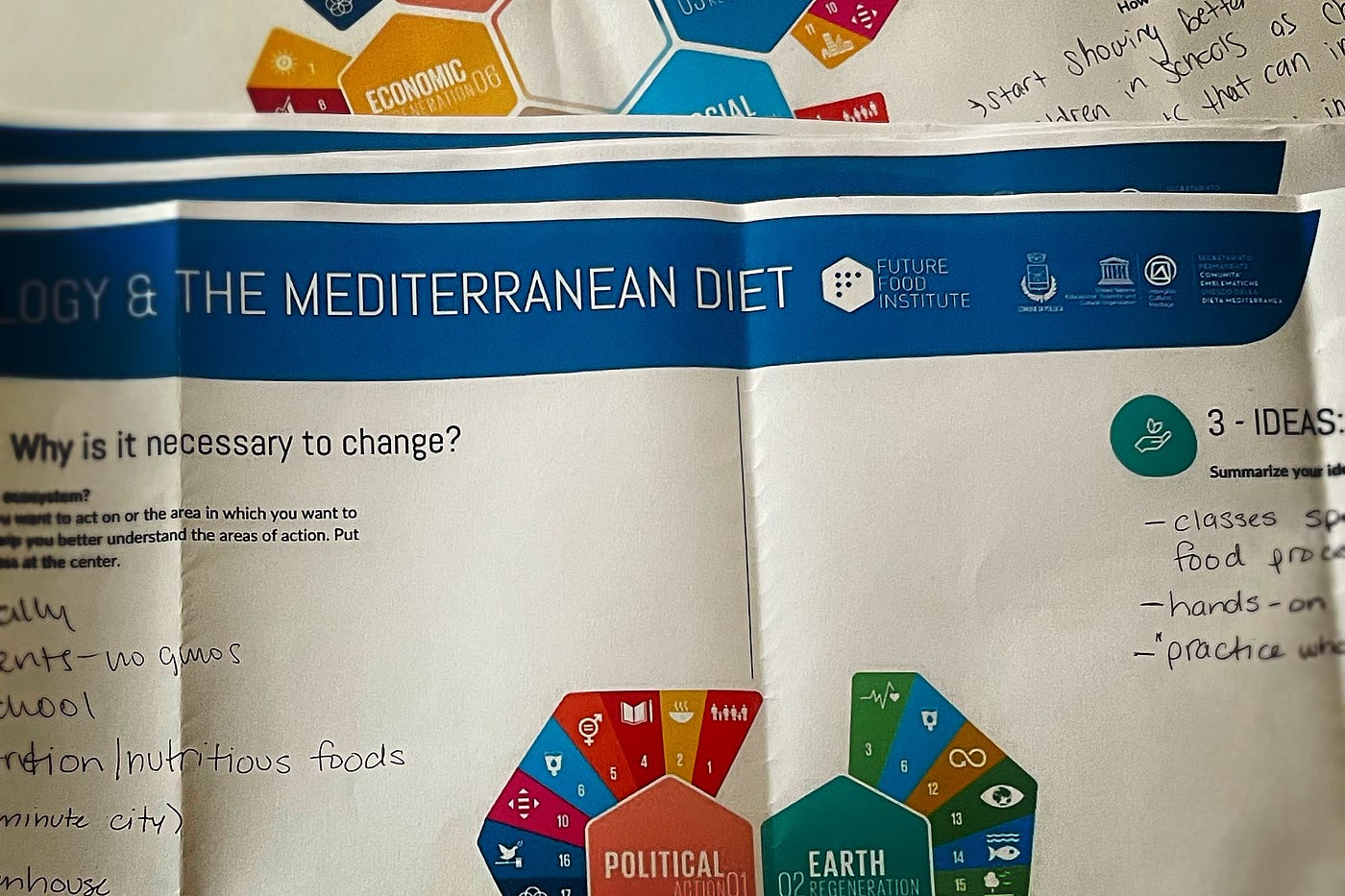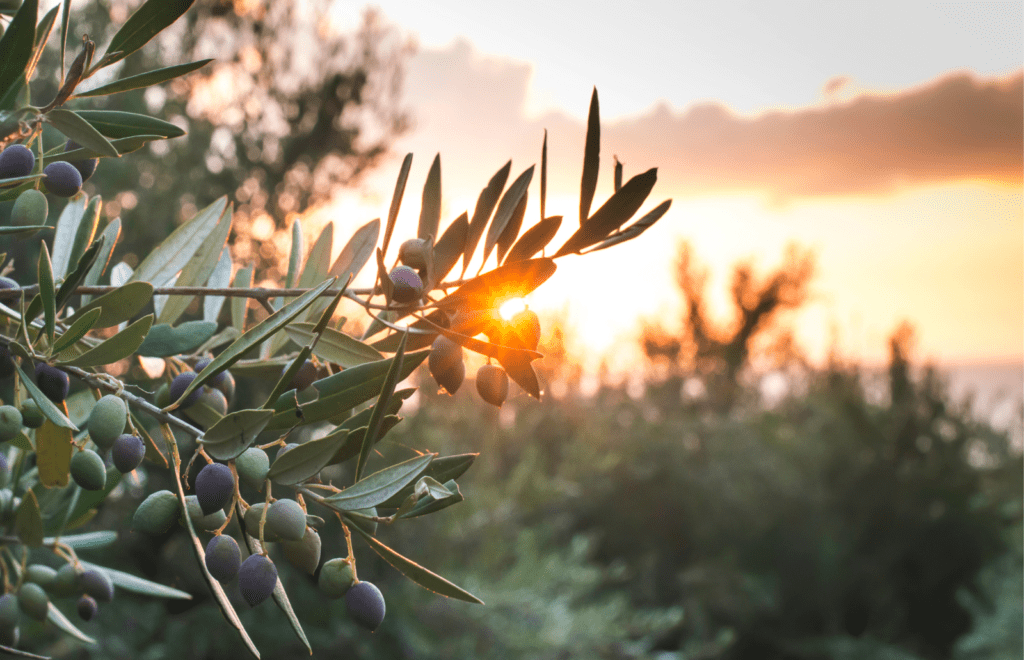The municipality of Pollica, UNESCO emblematic community for the Mediterranean Diet, has actively participated in the celebrations of the Week of Italian Cuisine in the World 2023, to effectively spread the value of the heritage of the Mediterranean Diet model.
We have celebrated Italian Cuisine Week in the World for eight years since 2015 when the World’s awareness changed. It has changed thanks to EXPO, which launched a solid and clear motto to the World from Milan — ”Feeding the Planet. Energy for Life” — paving the way for global reflection thanks to the announcement of the United Nations 2030 Agenda, which created an international watershed in the perception of the impacts generated by our way of life; with the Paris Agreement and COP21, which welcomed the World’s commitment to containing the rise in the earth’s temperatures; and with Pope Francis’ Encyclical Laudato Si’, which spread the concept of integral ecology, explaining to the World that “we cannot live healthy in a sick world.”
In 2015, the Ministry of Foreign Affairs and International Cooperation, using the network of Embassies, Consulates, and Italian Cultural Institutes and the support of ICE, launched an initiative that I like to call “gastro-diplomacy.” An initiative that, by spreading Italian food and wine culture around the World, supports the promotion of enogastronomic heritage and also conveys a political message: the celebration of our “living heritages,” national identity, and a model of development that promotes health, culture, inclusion and sustainability.
Italian Cuisine, resulting from a thousand-year journey, is a mosaic of values, biodiversity, cultures, and regional traditions. Every dish is a story, every ingredient a memory of different lands. Each element symbolizes a heritage that has evolved with love and respect for nature, from pasta to wine. This Cuisine is a dialogue between past and present, a balance of simplicity and refinement, a hymn to conviviality. But it is also the result of pioneering food policies that, over the centuries, have made Italy one of the most avant-garde countries on food security issues, the fight against waste, and sustainable agricultural practices. Even the United Nations has chosen Italy as its headquarters for “food,” nutrition, and world agriculture, with the headquarters of the Food and Agriculture Organization (FAO), the World Food Program, and the International Fund for Agricultural Development (IFAD) in Rome. So, perhaps, it is no coincidence that in this humus, from the vision and tenacity of Carlo Petrini, Slow Food was born: the movement that promotes “good, clean and fair” food in the World; nor can it be coincidental that that is the very land that is the cradle of the Mediterranean Diet and the place (Pioppi, Municipality of Pollica in the province of Salerno) chosen by scientists Ancel Keys and Margaret Haney to codify it and make it known to the World.

I connect all these dots and think, “Italian cuisine wasn’t built in a day.” And I reflect. Today, by celebrating culinary art, we celebrate a more remarkable history, a treasure that has evolved in its simplicity but in depth.

The 8th edition of the Week of Italian Cuisine in the World, centered on the theme “At the Table with Cuisine: Wellness with Taste,” aims to enhance the Italian food supply chain and food and wine tradition not only as the excellence of taste but as lifestyles for global well-being. The η Μεσογειακή Διατροφή — whose 13th anniversary of nomination among UNESCO’s Intangible Heritage we are also celebrating these days — fully represents the synthesis of this concept.

This year, with the Municipality of Pollica, a UNESCO Emblematic Community of the Mediterranean Diet, we at the Future Food Institute were honored to support the working group led by the Ministry of Health on a mission to Washington, where, at the Italian Embassy, we kicked off our celebrations of the Week of Italian Cuisine in the World. Three days dedicated to promoting the Mediterranean Diet, a pillar and distinctive symbol of Italian Cuisine, precisely in the year our Cuisine is a candidate for recognition as an intangible heritage of humanity by UNESCO, discussing crucial issues such as food security and sustainability.

The conference featured Ugo Della Marta, Director General for Food Hygiene and Safety and Nutrition at the Ministry of Health; Marco Silano, Director of the Department of Food, Nutrition and Health at the Department of Food Safety, Nutrition and Veterinary Public Health of the Istituto Superiore di Sanità; and Andrea Pezzana, Director of the Complex Structure of Clinical Nutrition of the ASL City of Turin and the University of Turin and his team. Welcomed by the Minister Plenipotentiary, Alessandro Gonzales (Deputy Chief of Mission at the Embassy of Italy in Washington) and Maria Fusco, Director of the School Office of the Embassy of Italy in Washington, we opened the work of the three-day event, highlighting the value of the Mediterranean Diet, touching on every dimension of it supported by scientific evidence; up to the UNESCO Dossier, which recognized it at the universal level. But the mission was not only aimed at scientific popularization: comparisons, projects, and practical experiences, a tasting of Extra Virgin Olive Oil led by UNAPROL- involved more than 200 high school children at Casa Italiana in Washington and the America Italy Society in Philadelphia.

Working with young people on these issues is a daily opportunity for us at the Future Food Institute and Paideia Campus in Pollica to study and learn. Young people are the litmus test of the health of our society, and their questions and concerns point us to the most pressing issues on which to act. Every time we interact with them, in every part of the World, we realize the importance of promoting data, explaining concepts such as “integral ecology” or the “Mediterranean Diet,” and integrating them into their daily lives. With the “Eat Well, Stay Well, Save the Planet — The Algorithm of Longevity” challenge, we stimulated them to consider implementing the Mediterranean Diet.

We started with the school canteens and needs and ideas emerged on how to improve the enjoyment, experience, and supply. We reflected on how to involve teachers and students in a collective action of awareness, what is missing, and who needs to be applied to act on the quality of the food that comes to their tables. But what struck me most was their desire for authenticity and safety, especially their desire for healthy food. “When the cost of an apple is equal to that of two hamburgers, it is difficult to make the right choice.” Their profound reflections deserve to be valued and shared: from Washington to Rome, they must show us how to take urgent action.

In a context where only 5 percent of Italians faithfully follow the Mediterranean Diet, the risk of losing this precious cultural heritage is very high. We, alongside the Municipality of Pollica (Permanent Secretariat of the UNESCO Network of Emblematic Communities of the Mediterranean Diet), are working to ensure that this practice is handed down to future generations, aware of its crucial role in improving the health of citizens and the environment.
For many, the Week of Italian Cuisine in the World is a powerful tool to promote the best of our country’s system. Still, we have always believed that it is also a valuable context to effectively spread the value of our heritages and the Mediterranean Diet model that aims to guarantee a future for humanity between culture, health, and sustainability.

